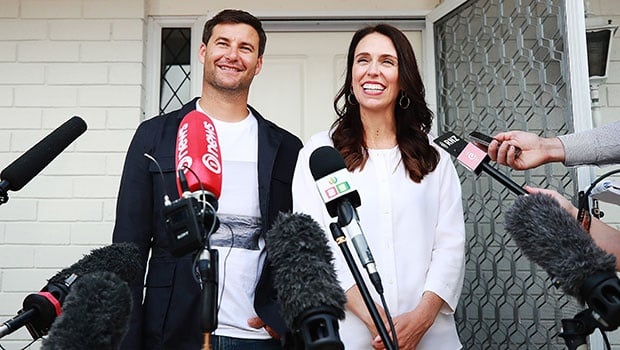
Last week New Zealand’s Prime Minister, Jacinda Ardern (37), made the announcement that she’s pregnant and will be taking six weeks maternity leave.
After that, she’ll return to office and her partner will take over the duties as the full-time caregiver.
Most of the world’s nations have never had a female head of state and of those 15 countries who did have a woman head of state in 2017, in 8 she was their first.
Ardern’s election in itself was important to shift norms about who can do the incredibly important and demanding job of running a country, and her pregnancy announcement draws attention to the fact that parental leave, both maternity and paternity, is an essential support mechanism for women in the workplace.
Read more: Maternity leave and pregnancy: here's what you need to know
The fact that her maternity leave is paid is vital.
Paid maternity leave allows women the opportunity to bond with their children in their earliest days without wondering if they will have access to their salary during that period, or whether they will have their job when they get back.
In South Africa we have a generous four months of maternity leave provided for in law but there is no requirement that this is paid.
This means that many South African parents spend the first months of their child’s life in a cash-strapped position. Ardern’s announcement reminds us of the necessity of lobbying for all South African women to receive paid maternity leave.
Ardern’s announcement is also important because it highlights the potential for men to take on the role of primary care giver. When she returns to office her partner will be caring for their baby full time whilst she runs a country.
Maternity leave is seen as something that gives women the opportunity to recover from the physical effects of pregnancy and childbirth. However, it also plays an important role in the early development of a child, something that both parents can participate in.
Read more: 10 things women wish their sexist bosses would stop saying
In many societies in the world, raising children continues to be seen as a woman’s job and a woman’s job alone. This norm is harmful to boys and men who want to be more caring parents, causing stigma when they show affection for their children or want to take time off from work.
For too long these norms have meant that there is no legal provision for paternity leave. Ardern and her partner’s decision challenges gender stereotypes and shows that men can and need to play an active role in raising their children.
In addition, without his decision to do this, her return to work would be far more difficult, showing how important paternal leave and paternal responsibility for children is for gender equality.
South Africa recently introduced legislation that will give fathers ten days parental leave.
Whilst this is a massive improvement on the measly provision of 3 days family responsibility leave, this is still not sufficient.
It doesn’t allow for the creation of different relationships of care, still indicating that the government thinks that parental leave is mostly a woman’s job.
It’s still not paid, which means many men may opt not to take this leave, because it would mean that neither parent would be drawing an income during that time.
Ardern’s announcement reminds us that we need to focus on expanding our definition of parental leave to ensure that it is paid, includes mothers and fathers, and takes account of the needs of parents in same-sex couples and adoptive parental relationships too.
Disclaimer: The views of columnists published on W24 are their own and therefore do not necessarily represent the views of W24.
Sign up to W24’s newsletters so you don't miss out on any of our hot stories and giveaways.
WATCH: Here’s What Maternity Leave Looks Like Around The World




 Publications
Publications
 Partners
Partners














